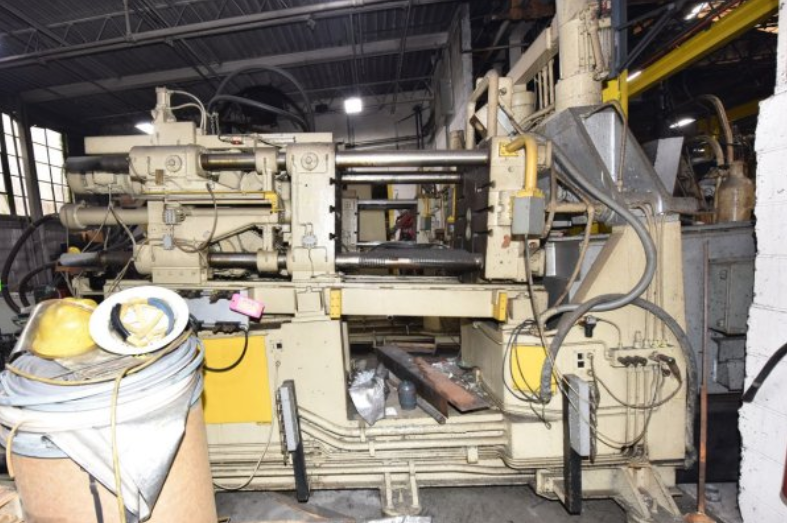Introduction:
Die casting is a highly efficient manufacturing process that involves the production of high-quality metal parts. It is widely used in various industries due to its versatility, speed, and cost-effectiveness. This article provides an overview of the die casting process, its applications, and the benefits it offers.
The Die Casting Process:
Die casting is a metal casting process that involves injecting molten metal into a mold cavity under high pressure. The molds, also known as dies, are typically made of steel and consist of two halves: the cover half and the ejector half. The molten metal is forced into the cavity under high pressure, resulting in a precise and complex-shaped part.
The process begins with the preparation of the mold. The mold is carefully designed to incorporate the desired shape and features of the final part. Once the mold is ready, it is preheated to a specific temperature to ensure proper metal flow and solidification.
Next, the molten metal is injected into the mold cavity using a high-pressure machine. The metal rapidly solidifies and cools inside the mold, forming the desired part. After solidification, the mold is opened, and the part is ejected using ejector pins or a mechanical ejector system. The excess metal, known as flash, is trimmed off, and the part is ready for further processing or assembly.
Applications of Die Casting:
Die casting is used in various industries, including automotive, aerospace, electronics, and consumer goods. It is particularly suitable for producing high-volume, complex-shaped parts with dimensional accuracy and excellent surface finish. Some common applications of die casting include:
1. Automotive Industry: Die casting is widely used in the automotive industry for manufacturing engine components, transmission parts, and structural components. It offers high strength, light weight, and cost-effectiveness, making it an ideal choice for producing automotive parts.
2. Aerospace Industry: Die casting is utilized in the aerospace industry for producing components that require high strength-to-weight ratio, such as turbine blades, rotors, and structural parts. The process ensures the production of precise and durable parts, meeting the stringent requirements of the aerospace industry.
3. Electronics Industry: Die casting is employed in the electronics industry for manufacturing various components, including connectors, housings, and heat sinks. The process enables the production of lightweight and compact parts with excellent thermal conductivity.
4. Consumer Goods: Die casting is used to produce a wide range of consumer goods, such as kitchen appliances, power tools, and hardware. The process offers high production efficiency and cost-effectiveness, allowing manufacturers to meet the demand for mass-produced consumer goods.
Benefits of Die Casting:
Die casting offers several advantages over other manufacturing processes, making it a preferred choice for many industries. Some key benefits of die casting include:
1. High Efficiency: Die casting is a highly efficient process that enables the production of complex-shaped parts with minimal secondary operations. The high-speed production cycle and quick solidification of metal result in reduced production time and increased productivity.
2. Cost-Effectiveness: Die casting offers cost advantages due to its high production rate, low scrap rate, and minimal material waste. The process allows for the production of precise and intricate parts with minimal machining, reducing the overall manufacturing cost.
3. Dimensional Accuracy: Die casting ensures excellent dimensional accuracy and repeatability. The molds are designed to replicate the desired shape and features of the part accurately, resulting in consistent and high-quality parts.

4. Strength and Durability: Die cast parts exhibit high strength, making them suitable for load-bearing applications. The rapid solidification of metal during the casting process enhances the mechanical properties of the parts, resulting in increased durability.
5. Versatility: Die casting can be used to produce a wide range of metals, including aluminum, zinc, magnesium, and copper alloys. This versatility allows manufacturers to select the most suitable material for the specific application, considering factors such as strength, weight, and corrosion resistance.
Conclusion:
Die casting is a highly efficient and cost-effective manufacturing process that offers numerous benefits. Its ability to produce complex-shaped, high-quality parts with dimensional accuracy and excellent surface finish makes it a preferred choice in various industries. With its versatility, speed, and reliability, die casting continues to play a vital role in the production of a wide range of products, from automotive components to consumer goods.
-

- high precision die-casting steering wheel for automotive
-

- سائیکل کے لیے میگنیشیم الائے سخت کانٹا - اپنی مرضی کے مطابق ڈائی کاسٹنگ میٹل پارٹس
-

- مینجینسیم الائے ڈائی کاسٹنگ تھیکسومولڈنگ میٹل بریکٹس
-

- میگنیشیم کھوٹ Thixomolding پاور بیٹر ہاؤسنگ
-

- ای بائک انٹیگریٹڈ فریم کے لیے اپنی مرضی کے مطابق فاؤنڈری پراڈکٹس ہائی پریزین ڈائی کاسٹنگ پارٹس
-

- میگنیشیم الائے ڈائی کاسٹنگ پارٹس اور ای بائک کے اجزاء

 0086-750-5616188
0086-750-5616188 +86 13392089688
+86 13392089688 sales@zhongmei-tech.com
sales@zhongmei-tech.com







